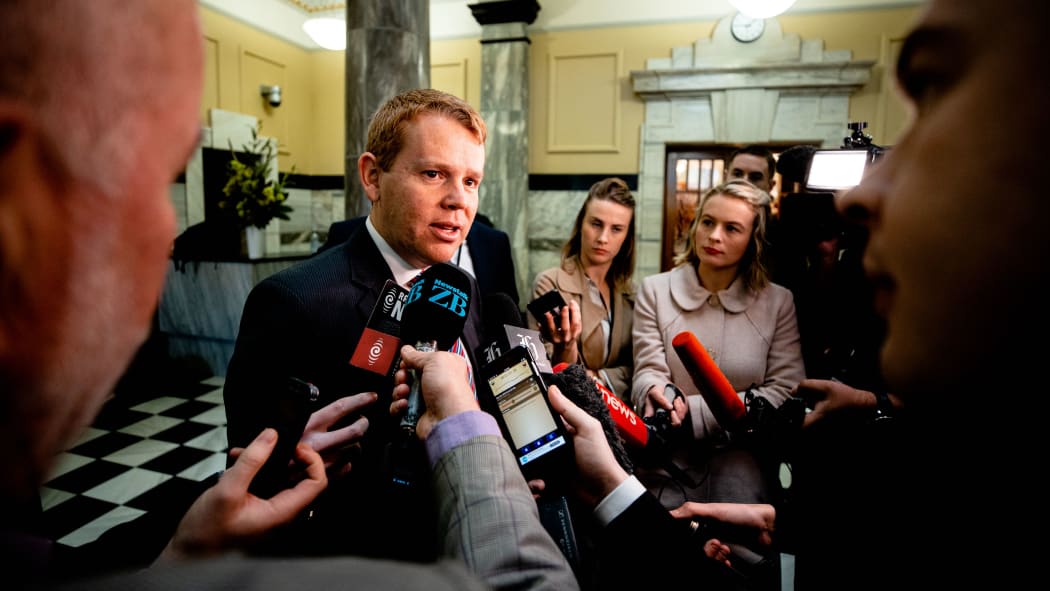Polytechnics have had another terrible year with one institute losing 1000 full-time students, mid-year enrolment figures indicate.

Photo: Photo / 123RF
The figures for domestic equivalent full-time student (EFTS) numbers showed 15 of the 16 polytechnics and institutes of technology had 2053 fewer total EFTS than at the same time last year, a drop of nearly 5 percent.
The figures did not include the Open Polytechnic.
Universities had a small increase in domestic students, while whare wānanga had a slight decrease.
Domestic equivalent-full-time student (EFTS) at qualification level 3 and above (August):
- Polytechnics: 67,592 EFTS, down 2053 from Aug 2018
- Universities: 146,935 EFTS, up 591
- Wānanga: 28,122 EFTS, down 191
Education Minister Chris Hipkins said a lot of young people appeared to be finding jobs instead of enrolling in tertiary courses.
"The universities are doing fine at the moment. The polytechs and the PTEs and the wānanga are all, I think, feeling the squeeze of a very tight labour market, so the financial lure for young people to go directly into employment rather than into tertiary study is biting," he said.
Hipkins said polytechnics would need more financial support from the government.

Education Minister Chris Hipkins. Photo: RNZ / DOM THOMAS
"We know that the polytech sector as a whole is running a significant deficit. That's unsustainable. We know that more money's going to have to go into that sector to make it viable. We want to make sure though that when we put that extra money in we're doing it in a way that's delivering the type of change that's needed to make that sector viable in the longer term."
The figures showed Unitec in Auckland had 1017 fewer full-time domestic students, 18 percent down compared to the same time last year.
Unitec interim chief executive Merran Davis said about half the figure was from the sale of MindLab and had generated extra income for the institute.
She said she expected the institute's final figure for domestic students to be about 6200 full-time students, about 900 fewer than in 2018.
She said international enrolments had also fallen, and Unitec was likely to finish the year with about 20 percent fewer full-time students from all sources than last year.
Other institutes with falling enrolments included:
- Tai Poutini Polytechnic (on the West Coast) had just 191 students in August, 414 fewer than at the same time last year
- Waikato Institute of Technology had 380 fewer full-time domestic students, down nearly 10 percent
- Nelson Marlborough Institute of Technology had 232 fewer, down nearly 13 percent
The figures indicated Canterbury-based polytechnic Ara had grown and could replace Unitec as the single largest institute of technology or polytechnic.
Ara's chief operating officer Darren Mitchell said its domestic and international enrolments had grown this year.
"We're up about two, two-and-a-half percent for the year - about 7200 EFTS in total - which I think is a pretty good outcome given the current context that we all find ourselves in," he said.
The eight universities meanwhile had grown their domestic student rolls by 591 EFTS, or 0.5 percent.
Most of the growth was at Canterbury University, which had 622 more full-time domestic students - 5 percent up on the previous year - and Massey, which had 280 more students, nearly 2 percent up.
Canterbury University deputy vice-chancellor Ian Wright, said it had returned enrolment numbers to what they were before the 2011 Canterbury earthquake.
"We're effectively there now, though the distribution of them across the university is different to prior to the earthquake - so we are definitely higher in engineering than we were prior to 2010-11 but we are still a little bit behind in things like the College of Arts."
Prof Wright said the university was expecting a similar level of growth in 2020.
The figures showed wānanga enrolments declined slightly overall, with falls at Aotearoa and Awanuiārangi outweighing a strong increase at Raukawa.







